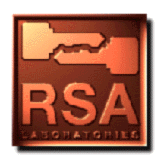

The NSA's charter limits its activities to foreign intelligence. However, the NSA is concerned with the development of commercial cryptography because the availability of strong encryption tools through commercial channels could impede the NSA's mission of decoding international communications; in other words, the NSA is worried lest strong commercial cryptography fall into the wrong hands.
The NSA has stated that it has no objection to the use of secure cryptography by U.S. industry. It also has no objection to cryptographic tools used for authentication, as opposed to privacy. However, the NSA is widely viewed to be following policies that have the practical effect of limiting and/or weakening the cryptographic tools used by law-abiding U.S. citizens and corporations; see Barlow [Bar92] for a discussion of NSA's effect on commercial cryptography.
The NSA exerts influence over commercial cryptography in several ways. First, it controls the export of cryptography from the U.S.; the NSA generally does not approve export of products used for encryption unless the key size is strictly limited. It does, however, approve for export any products used for authentication only, no matter how large the key size, so long as the product cannot be converted to be used for encryption. The NSA has also blocked encryption methods from being published or patented, citing a national security threat; see [Lan88] for a discussion of this practice. Additionally, the NSA serves an "advisory" role to NIST in the evaluation and selection of official U.S. government computer security standards; in this capacity, it has played a prominent and controversial role in the selection of DES and in the development of the group of standards known as the Capstone project (see Question 150), which includes DSS and the Clipper chip. The NSA can also exert market pressure on U.S. companies to produce (or refrain from producing) cryptographic goods, since the NSA itself is often a large customer of these companies. Examples of NSA-supported goods include Fortezza (see Question 156), the Defense Messaging System (DMS), and MISSI, the Multilevel Information System Security Initiative.
Cryptography is in the public eye as never before and has become the subject of national public debate. The status of cryptography, and the NSA's role in it, will probably continue to change over the next few years.